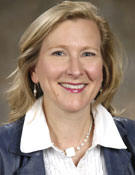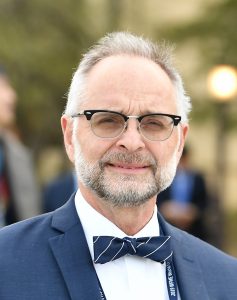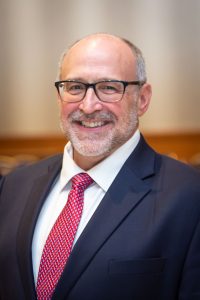The Challenges of Resident Candidate Assessment and Selection
The original intention of the USMLE was to serve as the primary assessment tool for state medical board physician licensing. Gradually, USMLE (in particular reliance on Step 1 scores) has been adopted as the primary screening and selection tool for the transition of candidates from UME to GME by residency directors and selection committees. Consensus has been developing that the current UME-GME transition reliance on USMLE Step 1 is inherently flawed since the results of a high stakes exam designed to qualify physicians for state licensing is not relevant in either holistically evaluating residency candidates or in providing an equitable means fairly distributing residency positions. This culminated in the Invitational Conference on USMLE Scoring (InCUS) conference in March 2019, where it became clear that USMLE Step 1 was no longer serving the stakeholders in what has become a flawed UME-GME transition system. Although the was general consensus of InCUS was that changes were needed, USMLE alone would not be the only component requiring a “fix”. However, several suggestions included implementing a “pass/fail” , composite, or categorical USMLE scoring system, as well as minimizing racial demographic difference affecting USMLE performance, among others.
From the program director’s perspective, it is unclear that changes in USMLE scoring alone would provide significant additional guidance in residency selection. Equitable selection of residency applicants has become major challenge, in view of the absence of hard data to reliably predict residency performance. In addition to USMLE part 1, our traditional tools have included letters of reference, medical school grades, election to AOA, Deans letter, and clinical course evaluations. Unfortunately, notwithstanding the MSPE and Dean’s letter, critical factors such as professionalism, accountability, social responsibility, team performance, peer interactions, and clinical skills cannot adequately be assessed. For many candidates, the most important determinants of future resident performance are observed during clinical rotations in the chosen subspecialty, either at the home school or as away rotations. Unfortunately, most students are faced with the challenge of a limited number of clinical elective rotations, and hence exposure to potential residency programs. As a consequence, most residency directors overly rely on the USMLE part 1 as a surrogate of clinical performance for students that have not rotated with them. During the COVID pandemic, the absence of in person away rotations has made clinical assessment of resident candidates even more challenging for programs.
Potential solutions could include incorporating a standardized residency assessment tool (RAT) utilized by all medical schools, that may include milestone – type assessments that correlate to the six core competencies, as well as evaluation of skills relevant to the type of residency applied to ( e.g. spatial coordination, technical ability for surgical specialties). Other tools such as the Jefferson Scale of Empathy and Crowd sourcing of clinical skills to assess potential candidates are being piloted in some programs.
This webinar will review the current challenges of resident candidate assessment and selection. The pandemic coming on the heels of the planned conversion of USMLE conversion to Pass/Fail has magnified the importance of developing alternative and viable candidate assessment tools and will be a major factor informing our discussion.
Pass/Fail Step 1: Implications for a foundational science department
This session will explore the impact of the USMLE Step 1 exam moving to pass/fail on a foundational science department. Focus will be on the potential and expected impacts on our faculty, curriculum and students.
USMLE Step 1 P/F: A UME Curriculum Dean’s Perspective
This session will review the anticipated impact of the shift of USMLE Step 1 on the undergraduate medical education curriculum and on medical students’ experience of the residency application process.
Step 1 Going Pass-Fail: Are We Just Kicking the Can Down the Road?
In recent years there has been growing concern about the potential negative impact of USMLE Step 1 scores being used as determinants as to who is invited to interview for residency positions, a step taken as the number of applications for each residency program became unmanageable. Concerns included the medical students focusing more on Step 1 study versus the curriculum of the medical school, and the general learning environment of Step 1 “frenzy” amongst the students. The announcement by the National Board of Medical Examiners in February 2020 that USMLE Step 1 is going to a pass/fail scoring system in 2021 was both applauded and condemned by medical educators and students. The president and immediate past-president of the Alliance of Clinical Education, the organization of medical school clerkship director organizations from Pediatrics, Internal Medicine, Family Medicine, Ob/Gyn, Neurology, Psychiatry, Surgery and Emergency Medicine will discuss the impact of USMLE Step 1 not having a numerical score, including the concern that with USMLE Step 2 CK remaining scored, are we just shifting the concerns to a different time in the life of a medical student.
USMLE Step 1: Osteopathic and International Perspectives
Reporting a Pass/Fail Outcome for USMLE Step 1: The Challenges Faced by International Medical Graduates
On February 12, 2020, after extensive stakeholder discussion, the National Board of Medical Examiners (NBME) announced that the United States Medical Licensing Examination (USMLE) Step 1 will transition to pass/fail. For program directors, the scores from this examination have been one of the most important factors in deciding which residency candidates to interview. The lack of scores will force changes to the residency selection process, some of which could have both positive and negative consequences for International Medical Graduates (IMGs). In this session, I will discuss some of the relevant issues associated with the transition to Step 1 pass/fail and how they are likely to impact IMGs. I will also provide insights on how this change could help motivate the medical community to develop a more efficient and effective pathway for medical school graduates to transition to postgraduate training.
USLME Transitions, An Osteopathic Perspective
Dr. Cain will review the Osteopathic medical community reactions to USLME moving to Pass/Fail and the challenges of a dual licensing system.
The Coalition for Physician Accountability: UME-GME Review Committee
Over the past few years, increasing attention has been devoted to identifying trends negatively impacting the UME-GME transition. InCUS (Invitational Conference on USMLE Scoring) laid important ground work for the efforts ahead. The decision to change the scoring of the USMLE Step I examination to pass/fail has accelerated the timeline for solutions, and the UME-GME community is energized to more comprehensively improve the UME-GME transition for all stakeholders. In follow-up to InCUS, the Coalition for Physician Accountability convened a UME-GME Review Committee (UGRC) in September 2020 with a one year charge to develop recommended solutions to identified challenges in the UME-GME transition. The UGRC is to act with transparency, consider stakeholder engagement, and utilize data when available. Assuring learner competence and readiness for residency, wellbeing, and equity are primary goals.
Learner Objectives:
At the end of this session, attendees will be able to:
–describe the history and background leading to the creation of the UME-GME Review Committee (UGRC)
–identify the goals, work process, and timeline of the UGRC


 Doug is currently a Professor and Chair of the Department of Foundational Medical Studies at the Oakland University William School of Medicine (OUWB). He leads a Department of 40 faculty members from all basic science and medical humanity disciplines. He joined IAMSE in 1998 and served on the Development Committee from 2001-2003. From 2002-2007 he served as the Editor-in-Chief of Medical Science Educator and Chaired the Editorial Board, served as a member of the Publications Committee and as an ex officio member of the Board of Directors; Doug also moderated a host of plenary and discussion sessions during his time as an IAMSE member. For over 20 years, IAMSE has been his ‘go to’ home for collaboration and interaction with colleagues for all things medical education!
Doug is currently a Professor and Chair of the Department of Foundational Medical Studies at the Oakland University William School of Medicine (OUWB). He leads a Department of 40 faculty members from all basic science and medical humanity disciplines. He joined IAMSE in 1998 and served on the Development Committee from 2001-2003. From 2002-2007 he served as the Editor-in-Chief of Medical Science Educator and Chaired the Editorial Board, served as a member of the Publications Committee and as an ex officio member of the Board of Directors; Doug also moderated a host of plenary and discussion sessions during his time as an IAMSE member. For over 20 years, IAMSE has been his ‘go to’ home for collaboration and interaction with colleagues for all things medical education! Jonathan Amiel, MD, is an Associate Professor of Psychiatry, Interim Co-Vice Dean for Education, and Senior Associate Dean for Curricular Affairs at the Vagelos College of Physicians and Surgeons (VP&S). His scholarly work focuses on competency-based medical education (CBME). He is the faculty leader for the AAMC national study on the implementation of Core EPAs to Enter Residency, a member of the International CBME collaborators and past-chair of the AAMC Northeast Group on Educational Affairs. He chairs the membership committee of the Gold Humanism Honor Society.
Jonathan Amiel, MD, is an Associate Professor of Psychiatry, Interim Co-Vice Dean for Education, and Senior Associate Dean for Curricular Affairs at the Vagelos College of Physicians and Surgeons (VP&S). His scholarly work focuses on competency-based medical education (CBME). He is the faculty leader for the AAMC national study on the implementation of Core EPAs to Enter Residency, a member of the International CBME collaborators and past-chair of the AAMC Northeast Group on Educational Affairs. He chairs the membership committee of the Gold Humanism Honor Society. Brenda Roman, MD is Associate Dean of Medical Education and Professor in Psychiatry at Wright State University Boonshoft School of Medicine in Dayton, OH. Previously she was the Director of Medical Student Education in Psychiatry for 18 years. Dr. Roman received her medical degree from the University of Nebraska Medical Center in 1988, and completed her residency in psychiatry at the University of Cincinnati Hospital system in 1992, then joined the faculty at Wright State University Boonshoft School of Medicine. She is certified by the American Board of Psychiatry and Neurology. She is a member of Alpha Omega Alpha Medical Honor Society and the Gold Humanism Honor Society. Her clinical work has focused on the college population and the homeless population. Her scholarly work focuses on medical education, curriculum development, and women’s mental health issues.
Brenda Roman, MD is Associate Dean of Medical Education and Professor in Psychiatry at Wright State University Boonshoft School of Medicine in Dayton, OH. Previously she was the Director of Medical Student Education in Psychiatry for 18 years. Dr. Roman received her medical degree from the University of Nebraska Medical Center in 1988, and completed her residency in psychiatry at the University of Cincinnati Hospital system in 1992, then joined the faculty at Wright State University Boonshoft School of Medicine. She is certified by the American Board of Psychiatry and Neurology. She is a member of Alpha Omega Alpha Medical Honor Society and the Gold Humanism Honor Society. Her clinical work has focused on the college population and the homeless population. Her scholarly work focuses on medical education, curriculum development, and women’s mental health issues. Bruce Morgenstern is Vice Dean for Academic & Clinical Affairs at the Roseman University College of Medicine. He received his MD degree from Jefferson Medical College. He trained in General Pediatrics at the Long Island Jewish – Hillside Medical Center and in Pediatric Nephrology at the St. Christopher’s Hospital for Children. After serving in the US Air Force at Keesler Medical Center, he practiced for 15 years at the Mayo Clinic and for another decade at Phoenix Children’s Hospital.
Bruce Morgenstern is Vice Dean for Academic & Clinical Affairs at the Roseman University College of Medicine. He received his MD degree from Jefferson Medical College. He trained in General Pediatrics at the Long Island Jewish – Hillside Medical Center and in Pediatric Nephrology at the St. Christopher’s Hospital for Children. After serving in the US Air Force at Keesler Medical Center, he practiced for 15 years at the Mayo Clinic and for another decade at Phoenix Children’s Hospital. Dr. Boulet is Vice President, Research and Data Resources, for both the Educational Commission for Foreign Medical Graduates (ECFMG®) and the Foundation for Advancement of International Medical Education and Research (FAIMER®). Dr. Boulet holds a B.Sc. in Mathematics from the University of Western Ontario and both a M.A. and Ph.D. in Education, specializing in measurement and evaluation, from the University of Ottawa. He is a Senior Scholar at the University of Illinois at Chicago, College of Medicine, an Adjunct Professor of Medicine at the F. Edward Hebert School of Medicine, Uniformed Services University, and a Fellow of the Society for Simulation in Healthcare. Dr. Boulet currently serves on the editorial boards for Advances in Health Sciences Education: Theory and Practice, Education for Health, and Simulation in Healthcare. He is a Deputy Editor for Medical Education.
Dr. Boulet is Vice President, Research and Data Resources, for both the Educational Commission for Foreign Medical Graduates (ECFMG®) and the Foundation for Advancement of International Medical Education and Research (FAIMER®). Dr. Boulet holds a B.Sc. in Mathematics from the University of Western Ontario and both a M.A. and Ph.D. in Education, specializing in measurement and evaluation, from the University of Ottawa. He is a Senior Scholar at the University of Illinois at Chicago, College of Medicine, an Adjunct Professor of Medicine at the F. Edward Hebert School of Medicine, Uniformed Services University, and a Fellow of the Society for Simulation in Healthcare. Dr. Boulet currently serves on the editorial boards for Advances in Health Sciences Education: Theory and Practice, Education for Health, and Simulation in Healthcare. He is a Deputy Editor for Medical Education. Robert A. Cain, DO, FACOI, FAODME, currently serves as the President and CEO of the American Association of Colleges of Osteopathic Medicine. In this role he represents osteopathic medical education in a variety of settings while overseeing the operations of the association that supports the nation’s colleges of osteopathic medicine and graduate medical education leaders.
Robert A. Cain, DO, FACOI, FAODME, currently serves as the President and CEO of the American Association of Colleges of Osteopathic Medicine. In this role he represents osteopathic medical education in a variety of settings while overseeing the operations of the association that supports the nation’s colleges of osteopathic medicine and graduate medical education leaders. Dr. Lovell graduated from the University of Wisconsin School of Medicine and Public Health, and completed her emergency medicine residency at the University of Cincinnati. She is the Program Director at the Advocate Christ Medical Center (ACMC) emergency medicine residency and a Clinical Professor at the University of Illinois, Chicago. Dr. Lovell currently serves as the Co-Chair of the Coalition for Physician Accountability UME-GME Review Committee, and as Chair of the Organization of Program Director Societies (OPDA). From 2011 through 2015, she served as a member of the Board of Directors for the Council of Residency Directors in Emergency Medicine (CORD). She has received teaching awards from the Emergency Medicine and Internal Medicine residency programs at ACMC, the CORD Impact Award for contributions to the national CORD Academic Assembly, the Associate Program Director of the Year award from the national Emergency Medicine Residents’ Association, and the Ally Award from the Society of Academic Emergency Medicine Academy for Diversity and Inclusion in Emergency Medicine.
Dr. Lovell graduated from the University of Wisconsin School of Medicine and Public Health, and completed her emergency medicine residency at the University of Cincinnati. She is the Program Director at the Advocate Christ Medical Center (ACMC) emergency medicine residency and a Clinical Professor at the University of Illinois, Chicago. Dr. Lovell currently serves as the Co-Chair of the Coalition for Physician Accountability UME-GME Review Committee, and as Chair of the Organization of Program Director Societies (OPDA). From 2011 through 2015, she served as a member of the Board of Directors for the Council of Residency Directors in Emergency Medicine (CORD). She has received teaching awards from the Emergency Medicine and Internal Medicine residency programs at ACMC, the CORD Impact Award for contributions to the national CORD Academic Assembly, the Associate Program Director of the Year award from the national Emergency Medicine Residents’ Association, and the Ally Award from the Society of Academic Emergency Medicine Academy for Diversity and Inclusion in Emergency Medicine.